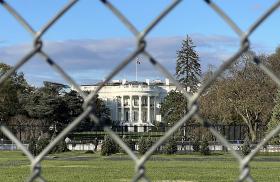In 1959, President Dwight Eisenhower reassured West Germany of its NATO security against any Soviet invasion, Fidel Castro seized control of Cuba's government, and the prime ministers of NATO allies Greece and Turkey held official meetings in Ankara for the last time -- until this week.
Greek Prime Minister Kostas Karamanlis met with Turkish Prime Minister Recep Tayyip Erdogan Jan. 23 to discuss bilateral, regional and international issues, including growing trade and investment between their respective economies as well as sovereignty disputes in the Aegean Sea and the division of Cyprus.
More importantly, Mr. Karamanlis and Mr. Erdogan also discussed bilateral confidence-building measures. The official visit, only the third by a Greek prime minister to Ankara since the 1923 founding of modern Turkey, is historic in that it further consolidates an ongoing, if quiet, rapprochement between the two neighbors.
The agenda is basic: the normalization of Greek-Turkish relations, which took a positive turn in 1999 after the two countries suffered consecutive earthquakes, triggering reciprocal outpouring of popular assistance and disaster relief. The two countries' foreign and security policy elites then embarked on mutual policies of rapprochement, agreeing to disagree on their disputes, while freeing Greek and Turkish leaders to exploit the enormous potential for deep cooperation between the two countries.
Since 1999, bilateral trade has mushroomed from $200 million to more than $3 billion in 2007, and tourism between the two Aegean counties has prospered. Greek banks, long invested in the Balkans, have turned to Turkey, where the National Bank of Greece acquired Finansbank -- Turkey's fifth-largest -- in 2006 for $2 billion.
In 2007, Turkey's largest and most profitable national bank received approval from Greece's central bank to initiate banking services there, and will soon open its first office in Athens.
Greece and Turkey recently opened a natural gas pipeline that renders them economically interdependent for the first time by connecting the energy-rich Caspian basin through their territories to European Union markets.
These examples of strategic economic cooperation could be transformational for the region. After all, this is how France and Germany normalized their relations following World War II, when they set up a trade and production regime centered on coal and steel that eventually became the EU.
Greek-Turkish rapprochement is working not just for the two countries, but could contribute to broader ties between Europe and the Middle East.
Since joining the EU in 1981, Greece's economy has been thoroughly modernized and in some areas transformed. Though it is the EU member geographically, historically and culturally closest to the Middle East, Greece has yet to fully realize its ambition for a more substantial role in the region.
EU candidate Turkey borders Iran, Iraq and Syria and is a major player in the Organization of Islamic Countries. Turkey's desire to join the EU has propelled economic and political reforms, bringing it closer to the EU even if some European capitals oppose Ankara's hopes for EU membership.
Greece's decision in 1999 to support the perspective of a truly European Turkey makes it one of Turkey's strongest boosters in Brussels. But serious bilateral and regional disputes persist between Greece and Turkey.
For starters, there is the Cyprus issue: The prospects are dim for resolving any time soon the decades-old Cyprus conflict. Nearly four years after the Greek Cypriots rejected a United Nations-sponsored plan to reunify the island, Greek Cypriots and Turks are entangled in a messy brawl: EU member Cyprus blocks Turkey's membership; Turkish Cypriots are outside the EU, and Cyprus is more divided than ever.
Athens and Ankara also disagree on the extent of their sovereignty in and over the Aegean Sea, resulting in frequent mock dogfights between their air forces and three near-war episodes in 1976, 1987 and 1996. Three dozen rounds of close talks since 1999 to help resolve these disputes have not yet succeeded, but they do continue.
As a result of such talks, the two countries' militaries seem to have a more benign view of each other. Last month, Greece and Turkey agreed to a joint unit to participate in NATO peacekeeping operations, a ground unit to assist the alliance's rapid response forces, and a third non-NATO group for disaster and relief efforts. The two nations also agreed to troop withdrawals along their shared frontier.
Franco-German partnership cooperation, inconceivable prior to the 1950s, gave birth to the European Union. Greek-Turkish partnership could transcend the eastern Mediterranean by building an enduring platform for core linkages between Europe and the Middle East; that is, the beginning of regional transformation with global impact.
Soner Cagaptay is director of the Turkish Research Program at the Washington Institute for Near East Policy. John Stilides is principal at Trilogy Advisors.
Washington Times


